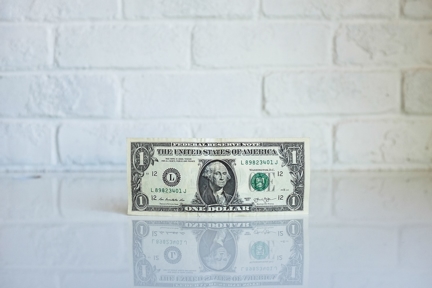 Good news for people who have a federal student loan that they are paying on.
Good news for people who have a federal student loan that they are paying on.
With the coronavirus pandemic spreading throughout the United States, crippling the economy and putting millions of people temporarily out of work or with substantially reduced incomes, Congress moved quickly to approve a $2 trillion relief bill, which included a program of relief for borrowers of federally held student loans. Under this bill, which became law, borrowers of federal student loans will have their interest frozen and payments suspended through at least Sept. 30, 2020.
Under this program, retroactive to March 13th, federal student loans will automatically have their interest rates set to 0% for a period for six months. Additionally, borrowers do not have to make payments during that six-month period. Since the relief was automatic, it means that is already in effect for all qualifying loans without the need for borrowers to sign up for it or make a request for the payment forbearance.
The first thing to understand is that only student loans that are held by the U.S. Department of Education are eligible for this interest freeze and payment suspension. To find out if your loan qualifies, you can go online to www.studentaid.gov to find out whether your federal loan is one held by the Education Department or another entity.
Another way to confirm whether a loan qualifies is for student loan borrowers to log on to their student loan servicer’s website to access their account. From there, they should see that there is no payment due. If the system is still showing a payment due, they should contact the servicer to confirm that a payment is not required under their student loan.
So, what does this student debt relief program actually mean?
Generally, the relief program covers three types of relief: forbearance of payments, waiver of interest and a pause on collection efforts. Let’s look at each of these three relief items and see how you can benefit from them.
Forbearance
Borrowers with federally held student loans will automatically receive a six-month forbearance for all federal loan borrowers, retroactive to March 13.
Basically, this means that no payments will be due during this break. This can be very helpful for people who have been laid off or furloughed and would have problems making these payment. Even if you are still working, this forbearance will also help if you anticipate that you will have difficulty making payments over the next six months. Pausing payments can also make financial sense to allow people the opportunity to prioritize other money moves, such as paying down other high-interest debt, such as credit cards, or starting an emergency fund.
However, while you will not be required to make payments during this period, you are allowed to continue to make payments if you want. For some folks, they may decide to continue payments.
Keep in mind that your loan balance isn't going to be reduced under this relief plan. When you start paying again, your balance will be the same as when you made your last payment. If you then continue pay the same monthly amounts after the deferment, you will be paying for a longer period of time. For some, they would rather have their student loan paid off as soon as possible and will want to continue paying through the deferment period.
And it is very important here to reiterate that, if you continue to make payments on the loan, the lender will accept them. If these payments are automatically withdrawn from your accounts, and you do not want to make the payments, you need to make sure to tell your provider to freeze that service during this grace period. Additionally, you can instruct the bank to temporarily stop the withdrawals.
Interest Waiver
The interest rate on federal student loans will be set to 0% for six months, retroactive to March 13, 2020. During this time, no new interest will accrue on federally held student loans.
This means that you are not penalized for not making any payments during the relief period. When you start paying again, there will be no accrued interest to pay; your balance will be the same.
 This also means that you may want to keep paying during this period. In fact, if you are still employed and able to comfortably pay your other bills, this is a unique opportunity to get ahead on your federal student loans. Assuming you do not have any unpaid interest, any payments you make during this relief period will go straight towards reducing your principal, creating a window to pay your loans off quicker, while having to pay less interest over time.
This also means that you may want to keep paying during this period. In fact, if you are still employed and able to comfortably pay your other bills, this is a unique opportunity to get ahead on your federal student loans. Assuming you do not have any unpaid interest, any payments you make during this relief period will go straight towards reducing your principal, creating a window to pay your loans off quicker, while having to pay less interest over time.
Collection Activities Pause
If your loans were in already default when the law went into effect, you will also see relief. The federal government has suspended all collection activities on federal student loans until further notice. These activities include wage and Social Security garnishment, tax refund seizure and collection calls and letters.
This means that any payments you owe will be suspended by the new law, and if you had any collection processes ongoing, they will be frozen as well. However, once the suspension ends, you will remain in default. This time period could allow you to play catch-up on payments and possibly get out of default, if you're still working or otherwise able to continue paying.
Since the law is retroactive to March 13, 2020, you will receive a refund for any forced student loan payments (such as a wage garnishment) that occurred after this date. It also includes a seizure of your 2019 federal income tax refund. However if your 2019 refund was seized before March 13, 2020, it is not required to be returned.
So, if your student loan does not qualify for this relief program, is there anything you can you do?
Even if your loans are serviced by a private provider, you may still have options. If you're struggling with the payments, you should contact your private student loan holder and determine if there's something you can do to work it out. Many private loaners are working to make accommodations for debtors affected by the coronavirus pandemic and state lockdowns. They may be able to arrange an alternate payment plan, even though they are not covered by this new law.
Don’t Wait to Take Action.
Do not wait to take action regarding your student loans. Contact your lender if you have questions about whether your student loan qualifies. The program has already gone into effect, and you may have already made a payment that was not required. If you do not want that payment to be made, you will need to ask for it to be refunded. And don’t forget: if you are paying automatically, you will need to request that it be cancelled.
If you are in a situation where you have lost your source of income or it has been significantly reduced, it’s important to be informed of programs that are available to help you. You are not in this alone, and our firm is here to not only provide legal advocacy where it’s needed, but to supply information and be a resource in any way possible. Please do not hesitate to contact our firm at (888) 981-9511 for the help you deserve.

